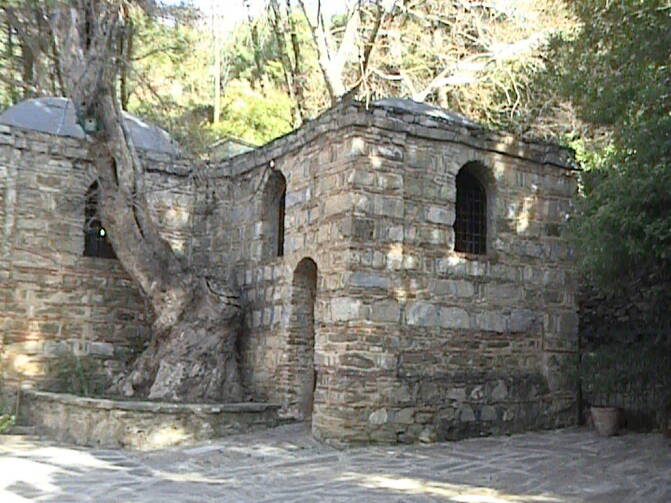In January 2014, I and some of my colleagues will be going to Dokuz Eylul University in Izmir, Turkey to speak about Jesus in the Christian tradition with Muslim theologians. This is not the first foray of the Muslim-Christian Dialogue center of the University of St. Thomas with symposia and conferences engaging Muslim scholars overseas. Terry Nichols, Mike Hollerich and Bernie Brady met with Muslim theologians in Qom, Iran this past summer and they had met previously with the Iranian theologians in Rome. The Turkish theologians have also visited St. Paul, Minnesota to discuss theological issues in the past.
My task for this upcoming conference is to present a paper on the New Testament picture(s) of Jesus, which I am busily working on right now so that it can be translated into Turkish for January. My approach is going to be threefold. I will first present aspects of Jesus’ humanity from the Gospels, based on a certain number of passages so that we have concrete texts to discuss and not just ideas. Second, I will focus on Jesus’ death and resurrection. I will contend that it was the actual experience of the risen Lord that lead first-century Jews who were monotheists to reconsider the nature of Jesus as not just human but divine, though the actual nature of the relationship of Jesus to God the Father is not worked out systematically in the New Testament. Finally, I will concentrate on some passages which indicate that Jesus is not just spoken of as divine, but that Christian prayer and worship even in the New Testament is being offered to Jesus as divine being.
Here is a question for you: are there certain passages that you think are essential to consider? I will be choosing passages from throughout the New Testament, so the Gospels, Paul’s letters, the general epistles, Hebrews, Acts, Revelation, are all in the discussion. I must limit the number of passages I discuss, however, both in terms of presentation of my paper and the subsequent discussion. The passages will fall into one of these three categories: Jesus’ humanity; the resurrection as the turning point in consideration of Jesus as divine; Jesus’ divinity as seen in prayer and worship of the earliest Christians. What passages do you think are essential and must be considered in this conversation with Muslim theologians? I will not mention any passages that I am using or considering right now (though I admit it will be hard to skip John 1 or Philippians 2:5-11) because I would love to hear from you.
John W. Martens
I invite you to follow me on Twitter @Biblejunkies
I encourage you to “Like” Biblejunkies on Facebook.
This entry is cross-posted at Biblejunkies









Bruce,
Of course this is an acceptable format. I will do my best in Izmir to visit Archbishop Gumbinger's grave! As to your passage, do you see this as a passage that particularly speaks to Jesus' unique nature or that points his disciples to the world to come? Just trying to make sense of where you see this passage fitting in a discussion of Jesus as human and divine. Thank you by the way for your faithful commenting. It is much appreciated.
Tom,
Thank you! I knew this was a good idea. 1 Cor 12:3 was indeed on my radar, but I had overlooked 1 Cor 8:6! This is a terrific passage to examine. I do agree that a starting point from the historical milieu is significant; my other focus, following Luke Timothy Johnson, Larry Hurtado and others, will be a focus on the religious experience of the first followers of Jesus.
In general, you are correct about the difficulties and the uneven playing field (hermeneutically), but we are thankful for this opportunity to present an academic case for the Christian understanding of Jesus.
Thanks again. Much appreciated.
John